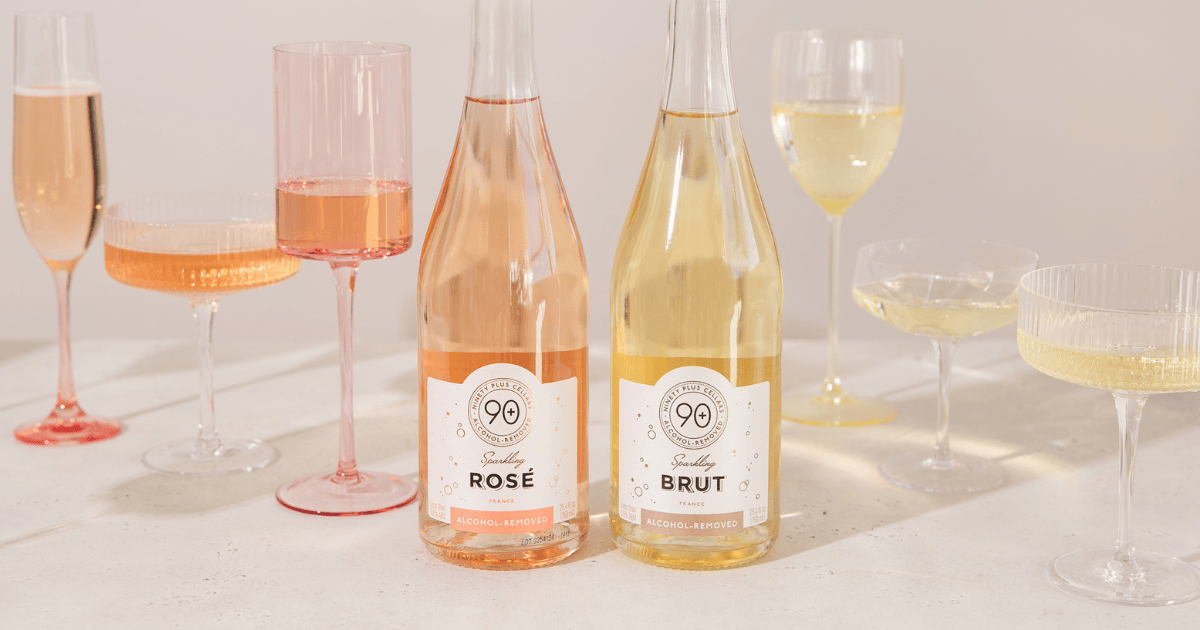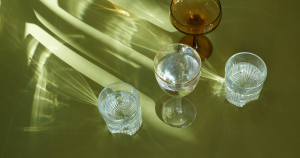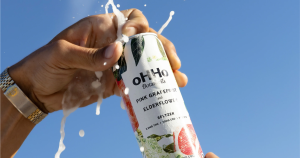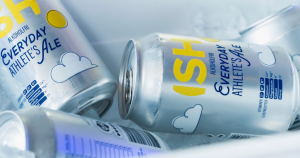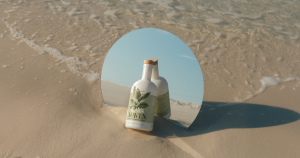Partner Content: 90+ Cellars
With nearly two decades of experience making great wine accessible, 90+ Cellars is now entering a new frontier: non-alcoholic wine. The brand’s move into this fast-growing category is led by Alexandra Shaughnessy, Wine Director, and Terry Lozoff, VP of Marketing, who bring deep industry expertise and long-standing winery relationships to the table.
90+ Cellars aims to deliver full-flavored, approachable bottles that stay true to their reputation (and retail for $15 or less). In this interview, Alexandra and Terry share how their non-alcoholic wines came to life, why sparkling was the natural first step, and what they see coming next for the broader wine industry.
Dry Atlas: 90+ Cellars has always been focused on making wine more accessible. Was that the main reason behind your move into non-alcoholic wines, or were there other motivators?
Alexandra Shaughnessy: It was definitely a combination of reasons. One is the rise in sparkling wine consumption overall. Sparkling wines, both alcoholic and non-alcoholic, have been some of our most popular. Starting with non-alcoholic sparkling just made sense.
Also, we’ve always considered ourselves an inclusive brand. As more people explore mindful drinking, we wanted to ensure we had something for everyone. Adding non-alcoholic wines to the portfolio was a natural extension of that.
DA: You’re a traditional wine company stepping into a space largely dominated by new, non-alcoholic-only brands. How did your winemaking background influence your approach?
AS: 90+ Cellars has been around for over 15 years. In that time we’ve built great partnerships with many wineries, growers and producers around the world. For these new wines, we leaned on a winery partner that’s been producing non-alcoholic wines for over 20 years. They’ve really perfected this process. The grapes we use—Souvignier Gris for the Brut and Grenache for the Rosé—are chosen for their naturally lower alcohol and higher acidity, which is ideal for dealcoholization. Starting with the right varietals gives us a much better end product.
DA: Let’s talk about the dealcoholization process. That’s no small feat when you’re aiming to preserve complexity and structure. What was that like?
AS: It’s definitely a challenge. The winery we work with uses reverse osmosis, which is a gentler way to remove alcohol while keeping the flavor and aroma compounds intact. You have to be really careful, or you end up with something closer to juice. Our goal was always to produce something that still felt like wine, and not something that was artificially reconstructed with flavors and additives.
DA: You’ve built trust with traditional wine consumers. Did you have to approach the marketing for your non-alcoholic wines differently?
Terry Lozoff: A little, yes. 90+ Cellars has built a reputation for offering great wines at great prices by working with top wineries worldwide. So, from that standpoint, our non-alcoholic offerings actually fit within the brand’s core DNA.
That said, the audience is slightly different. Dry January gave us a great opportunity to launch, because that’s when consumers actively seek non-alcoholic options. But we’ve also been talking about lower-calorie, lower-ABV wines for years. This just extends that story.
DA: What kind of early reception did you get when the products launched?
AS: The response was incredible right out of the gate. We sold through an entire container on presale alone—before anyone had even tasted the wine. That says a lot about the trust people have in our brand. Our second shipment sold out, too, and we’re expecting the third to move just as quickly.
TL: We also quickly received feedback that consumers were really impressed with the quality and price point. Non-alcoholic wines often start around $20 and go up from there. We’re offering a true dealcoholized wine made by a winery with decades of experience, and it’s on shelves for $12. That’s rare!
DA: There’s a lot of education happening around non-alcoholic wine right now. Do you feel the need to educate consumers, or are they already coming in curious?
TL: I think curiosity is already there. Thanks to brands like Athletic Brewing on the beer side, you’re seeing growing interest, and it’s now extending into wine and spirits.
We’re not trying to over-educate. We’re just saying: “Here’s a great product, try it.” The one area where education helps is around how non-alcoholic wines are made. Not every bottle on the shelf is actually made from dealcoholized wine; some are just grape juice or fruit-based blends. So we’ve shared a bit about our process, but really, people are eager to try and find what they like.
DA: For consumers exploring non-alcoholic wine for the first time, what advice would you give?
AS: Try a few different options. Just like with traditional wine, not everything will suit your taste. There are different ways to make non-alcoholic wine, and the process really matters.
We’re starting with actual wine made by a family-run winery with more than 100 years of experience. That’s a big difference compared to something that’s built from concentrate or fruit blends. Look for wines with naturally lower alcohol and higher acidity. Those tend to produce a better final product once dealcoholized.
DA: You launched with sparkling wines. Why start there?
TL: Sparkling is our most popular category, and it just made sense from a product standpoint. When you remove alcohol, you’re removing body. Carbonation helps give some of that body back. The mouthfeel is just more forgiving with sparkling.
Still wines are trickier to get right, but we’re definitely looking into them. The demand is there, and we’re always looking to expand the portfolio in ways that make sense.
DA: As you look ahead, how do you see the non-alcoholic category—and the broader wine industry—evolving?
AS: I think the non-alcoholic space is just getting started. And for us, these first two sparkling wines are just the jumping-off point. Because of how we’re structured and the relationships we’ve built with top wineries, we’re in a great position to respond to changing demand.
TL: The wine industry as a whole needs to become more inclusive and more approachable. We’ve been focused on this for over a decade! But the industry is starting to catch on. The next generation of wine drinkers is looking for something different. Non-alcoholic fits right into that.
This interview has been edited for length and clarity.


